nuremberg principles
description: set of guidelines for determining what constitutes a war crime, created by the UN International Law Commission to codify the legal principles underlying the Nuremberg Trials
9 results
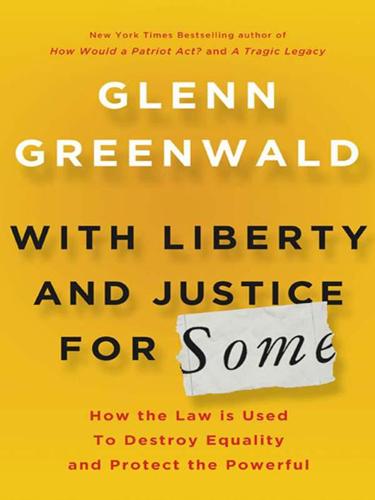
With Liberty and Justice for Some: How the Law Is Used to Destroy Equality and Protect the Powerful
by
Glenn Greenwald
Published 11 Nov 2011
As the lead prosecutor (and former U.S. attorney general) Robert Jackson explained in his opening statement: What makes this inquest significant is that these prisoners represent sinister influences that will lurk in the world long after their bodies have returned to dust…. And let me make clear that while this law is first applied against German aggressors, the law includes, and if it is to serve a useful purpose it must condemn, aggression by any other nations, including those which sit here now in judgment. Central to the Nuremberg principles was the imperative that crimes be punished regardless of the status, motives, or excuses of those who perpetrated them. War crimes, Jackson observed, are such that “civilization cannot tolerate their being ignored, because it cannot survive their being repeated.” And contrary to the self-protective claims of contemporary Washington elites, Jackson pointed out that the only way to ensure such crimes don’t happen again is through accountability and punishment: “The common sense of mankind demands that law shall not stop with the punishment of petty crimes by little people.
…
And contrary to the self-protective claims of contemporary Washington elites, Jackson pointed out that the only way to ensure such crimes don’t happen again is through accountability and punishment: “The common sense of mankind demands that law shall not stop with the punishment of petty crimes by little people. It must also reach men who possess themselves of great power.” Despite the esteem in which the Nuremberg principles are held in theory, anyone arguing today that they should actually be applied to American leaders is quickly dismissed as frivolous. This is particularly true when it comes to what Jackson called “the greatest menace of our times” and “the central crime in this pattern of crimes, the kingpin which holds them all together”: “the plot for aggressive wars.”
…
There is no doubt that the 2003 attack on Iraq by the United States was an “aggressive war” by every measure, and certainly by the standard codified at Nuremberg. Moreover, that attack resulted in the deaths of hundreds of thousands of civilians, the displacement of millions more, and the total devastation of a nation of 26 million people. But the very idea that American leaders responsible for it should be held legally accountable under the Nuremberg principles, or condemned as having done anything criminal, is violently rejected by the Washington consensus whenever the idea is brought up at all. Jackson’s warning that the Nuremberg proceedings would be meaningful only if their principles bound all nations in the future, including the nations that had convened the trial, has simply been brushed aside.
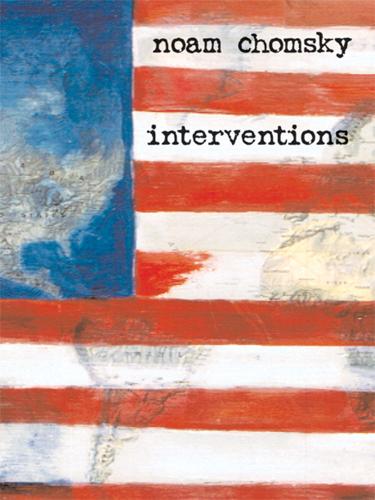
Interventions
by
Noam Chomsky
., 116–117, 133, 134, 161 U.S. occupation, 74–75, 77–79, 116–117, 161–162, 201–205, 207 American public opinion, 74 Iraqi public opinion, 78, 116, 162, 164, 201 National Guard troops in, 147 pretexts, 111 and UN, 41–44, 74–75 See also Fallujah, Iraq Iraq Center for Research and Strategic Studies, 201 Iraq War, 5, 19-23, 41, 73–76 American popular opinion, 75, 202 casualties, 17, 101 and children, 16, 106 demonstrates U.S. doctrine of “using force at will,” 48 forecasts, 4, 13–17 Iraqi public opinion, 77–78, 86, 201 media coverage, xxi, xv Middle Eastern opinion, 25 and Nuremberg principles, 178 and oil, 162 pretexts for, xv–xvi, 3, 36, 52, 77, 86, 111, 133–135, 161 putative end, 37 Spanish popular opinion, 93–94 as trial run, 25-28 and Turkey, 53 violation of Nuremberg principles, 106 Islam, 135. See also Shiite Muslims; Sunni Muslims Israel, 2, 4, 25 boundaries, 29, 30, 33, 63 compared to South Africa, 30, 64, 82 General Security Service, 38, 82, 84 “indistinguishable from terror organization,” 188 invasion of Lebanon, 187–192 occupation of Palestine, 3, 29–34, 63-66, 118 proposed transfer of Arabs, 84 and North Korea, 48–49 and U.K., 63 and UN, 42, 184 and U.S., 29, 33–34, 65, 99, 118, 187–192 Israeli-Palestinian conflict, 29-34, 63-66, 81–84, 165–168, 187–192 American public opinion, 66, 84 binational state feasibility, 83 Israeli public opinion, 84 “right of return” (of Palestinians), 83–84 Sharon-Abbas cease-fire (2005), 117, 118 two-state settlement (proposed), 81, 83–84, 166, 189 and U.S., 81, 84, 165–166 Jackson, Andrew, 8 Jackson, Robert, 177–178 Jacob, Lawrence, 217 Japan, 46 declared war to ensure “self-preservation” (Hirohito), 142 Jarring, Gunnar, 29 Jefferson, Thomas, 54 condemns France for “defiance,” 70 Jehl, Douglas, 135 Jesuit priests murdered in El Salvador, 122 jet bombers made in the U.S., dispatched to Israel, 117 jihad, 5, 22, 140 expedited by U.S. and Israeli violence, 191 John Quincy Adams and the American Global Empire (Weeks), 113 Jordan, 83, 167 Journey of the Jihadist (Gerges), 5 Kaiser, Robert, xv Kaspit, Ben, 32 Kay, David, 74 Kennedy, John F., 21 Kennedy, Robert, 68 Kerry, John, 95, 97–98 accurately described as “Bush-lite,” 75 Khamenei, Ali, 189, 210 Khatami, Mohammad, 183 Khmer Rouge, 204 Khouri, Rami G., 190 kidnapping Israeli, 188–189 Kiernan, Ben, 203–204 Kimmerling, Baruch, 64 Kinsley, Michael, xix Kirchner, Nestor, 171 Kissinger, Henry, 143, 181, 198 calls for genocide, 204 Koh, Harold, 107 Kosovo, 175, 179 Krauthammer, Charles, xv Krepon, Michael, 36, 174 Krugman, Paul, xviii Kurds, 14, 26, 182 compared to Cherokees, 9 gassed by Saddam Hussein in 1988, 51, 58 Kuwait, 14, 55, 58 invasion by Iraq, 8 Kyoto Protocol, 98–99, 153 American public opinion, 154 La Guardia, Anton, 88 labor movement repressed in Iraq, 79 repressed in Colombia, 122–123 re-establishing in Iraq, 163–164 Lancet article on Iraq War casualties, 17, 101–102 Laos, 203 Larijani, Ali, 184 Latin America, 156, 193–196 foreign investment in, 196 U.S. and, 25, 144, 193, 196 See also South America Latinobarómetro, 158 Lebanon Hezbollah, 183 U.S.
…
Regrettably, this is not at all untypical of resort to “Just War theory” to justify Washington’s resort to violence.2 By appeal to “just war,” counterterrorism, or some other rationale, the United States exempts itself from the fundamental principles of world order that it played the primary role in formulating and enacting. After World War II, a new regime of international law was instituted. Its provisions on laws of war are codified in the UN Charter, the Geneva Conventions, and the Nuremberg principles, adopted by the General Assembly. The UN Charter bars the threat or use of force unless authorized by the UN Security Council or, under Article 51, in self-defense against armed attack until the Security Council acts. In 2004, a high-level UN panel, including, among others, former National Security Adviser Brent Scowcroft, concluded that Article 51 needs neither extension nor restriction of its long-understood scope . ..
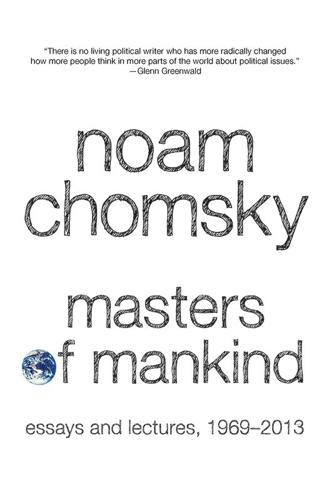
Masters of Mankind
by
Noam Chomsky
Published 1 Sep 2014
As it turns out, the operational definition of a “crime of war” is a criminal activity of which the defeated enemies, but not the victors, are guilty. The consequences of this moral stance were soon to be seen in Korea and Vietnam. It would be naive to suppose that a serious moral critique would have prevented further criminal acts of the sort condoned (or ignored) under the Nuremberg principles. Nevertheless, the example illustrates the seriousness of the enterprise in which Walzer is engaged. Even the most profound justification of the standard doctrine would be of limited import, since it is in any case widely accepted in principle, if not in practice. Hence the major interest of Walzer’s study lies in the modifications and refinements he proposes, as in his restrictive interpretation of the war convention.
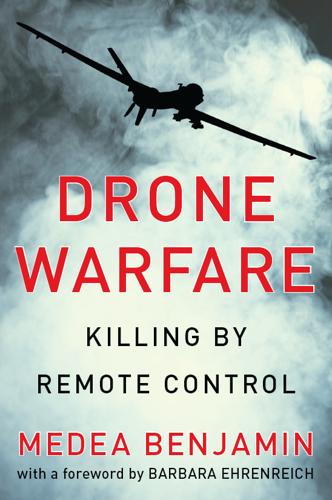
Drone Warfare: Killing by Remote Control
by
Medea Benjamin
Published 8 Apr 2013
They also invited three expert witnesses to speak on their behalf: Ramsey Clark, who was US Attorney General under President Lyndon Johnson; Center for Constitutional Rights legal director Bill Quigley; and Ret. Army Colonel Ann Wright. The defendants took turns questioning the witnesses, establishing the fact that drone strikes kill a large number of civilians; that people have the right, even the duty, to stop war crimes; and that according to the post-World War II Nuremberg principles, individuals are morally and legally bound to disobey orders that entail crimes against humanity. They cited the history of protesters who broke petty laws, from the nation’s founders to the Suffragists to the civil rights activists who illegally sat in at lunch counters. “In the long run, we honor them for obeying a higher law, for helping to bring us toward justice,” said Quigley.266 In a surprising turn of events, at the end of the trial Judge Jansen declared that the issues at stake were too important to make an immediate ruling and gave himself four months to analyze the case.
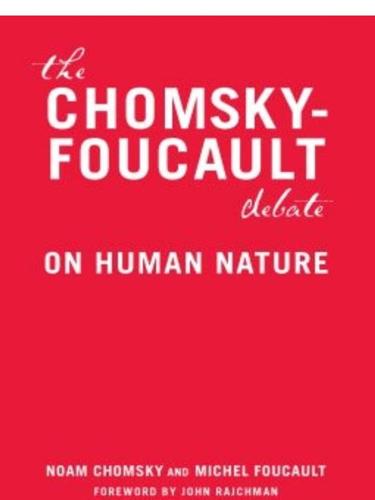
The Chomsky-Foucault Debate: On Human Nature
by
Noam Chomsky
and
Michel Foucault
Published 1 Jan 1974
Now that’s a fundamental defect of international law and I think one is justified in opposing that aspect of international law as having no validity, as having no more validity than the divine right of kings. It’s simply an instrument of the powerful to retain their power. But, in fact, international law is not solely of that kind. And in fact there are interesting elements of international law, for example, embedded in the Nuremberg principles and the United Nations Charter, which permit, in fact, I believe, require the citizen to act against his own state in ways which the state will falsely regard as criminal. Nevertheless, he’s acting legally, because international law also happens to prohibit the threat or use of force in international affairs, except under some very narrow circumstances, of which, for example, the war in Vietnam is not one.
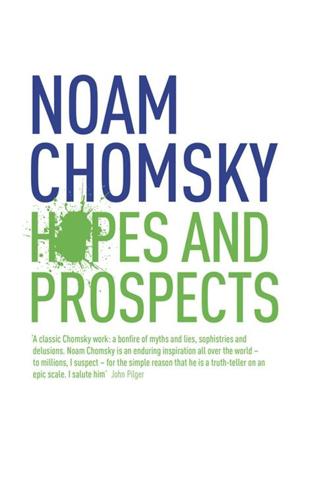
Hopes and Prospects
by
Noam Chomsky
Published 1 Jan 2009
., 37, 42, 61, 116 Noble, David, 88 Non-Aligned Movement, 135, 196 Norris, John, 287n23 North American Free Trade Agreement (NAFTA), 29, 35–36, 69, 69, 91, 215–16, 270 North Atlantic Treaty Organization (NATO), 65, 171, 238, 248, 278 East German territories and, 171, 173, 279–80 expansion, 65, 136, 173–74, 223, 279–80 Gorbachev and, 136, 171, 279 “NATO response force,” 223–24 “responsibility to protect” and, 185 North Korea, 137–40 Nuclear Non-Proliferation Treaty (NPT), 194–97 Iran and, 135, 169, 196, 197, 199, 249, 250 Israel and, 194, 195 Obama and, 165–66, 194, 196, 197, 199, 249, 250 Pakistan and, 240 Reagan and, 240 United States and, 136 nuclear weapons, 166, 174 Diego Garcia and, 168 eliminating/ending the threat of, 136, 65–67 India and, 194–95 Iran and, 135, 169, 188, 194, 196–200, 249 Iraq and, 128, 198 Israel and, 194, 196, 197, 199, 249 Lee Butler on, 165 NATO and, 171 no-first-use policy, 166, 171 North Korea and, 137–39 Obama and, 165–66, 194–96, 249 Pakistan and, 169, 194, 196, 198, 210, 240, 249 Russia and, 168, 171 Saddam and, 127–28, 139, 197, 198 See also ballistic missile defense (BMD) programs; missile defense programs; weapons of mass destruction nuclear weapons programs, U.S. allies with extensive, 249 nuclear weapons–free zones (NWFZs), 63, 135, 167–69, 171, 173, 250. See also weapons of mass destruction free zone Nuremberg principles, 131 Obama, Barack, 144, 170, 195, 203, 217, 218, 225, 251 Afghanistan and, 238, 242, 247–49, 257 al-Qaeda and, 239 appointments and administration, 217, 219–23, 225 Arab League proposal and, 252–54 on Arab peace initiative, 251–52 Arabs and, 191 Bolivia and, 216 “brand Obama,” 210, 214, 250 Bush doctrine and, 239 Cairo address to Muslim world, 177, 189–90 on democracy and elections, 191, 192 financial industry and, 217, 228–30 “free market” policy extended by, 92 Gaza and, 253, 256 George Mitchell and, 251 on Hamas, 254 Hamid Karzai and, 242, 257 health care and, 226–28, 231 Honduras and, 67–68, 276 international law and, 262 Iran and, 249 Iraq and, 234, 237–38 Israeli settlements and, 187 Israel-Palestine problem and, 177, 178, 181, 190–91, 195–96, 233, 249–58 on Jordan, 256 Justice Department, 263, 264 labor law reform, 217, 218 on Middle East peace, 254 military commissions reinstated by, 264 military spending and, 64 Mubarak and, 191, 192 “new initiative” for Middle East, 182, 201, 203 Non-Proliferation Treaty (NPT) and, 249 Nuclear Non-Proliferation Treaty and, 165–66, 194, 196, 197, 199, 250 nuclear weapons and, 65–66, 165–66, 194–96, 249 on “Palestinian state,” 178, 180, 182, 190–91 presidential campaign, 65, 129, 210, 212–15, 233 (See also elections, 2008 U.S.)
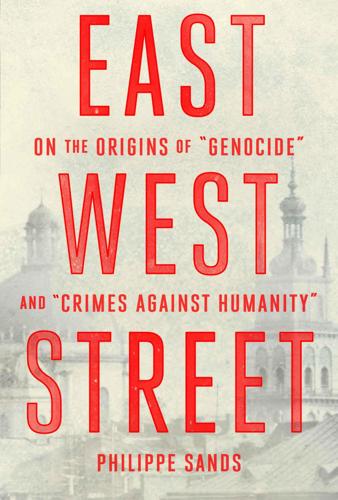
East West Street: On the Origins of "Genocide" and "Crimes Against Humanity"
by
Philippe Sands
Published 14 Jul 2016
In Germany, too, archival doors were opened with the help of Dirk Roland Haupt (Ministry of Foreign Affairs) and Rainer Huhle (Nuremberg Human Rights Center). I came to know the Nuremberg courtroom with the support of Dr. Anne Rubesame, Michaela Lissowsky, and Ambassador Bernd Borchardt (of the International Nuremberg Principles Academy), and Henrike Zentgraf (of the Memorium Nuremberg Trials). Dr. Norbert Kampe offered a personal introduction to the House of the Wannsee Conference. Knots in my understanding of German were partly untied with the help of Daniel Alexander, Q.C., Professor Josef Bayer (Konstanz University), Sabine Bhose, David Cornwell, Professor Dr.
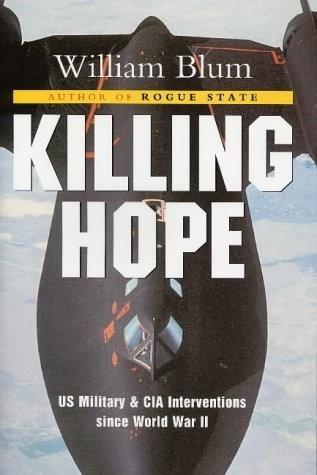
Killing Hope: Us Military and Cia Interventions Since World War 2
by
William Blum
Published 15 Jan 2003
During the Vietnam war, a number of young Americans refused military service on the grounds that the United States was committing war crimes in Vietnam and that if they took part in the war they too, under the principles laid down at Nuremberg, would be guilty of war crimes. One of the most prominent of these cases was that of David Mitchell of Connecticut. At Mitchell's trial in September 1965, Judge William Timbers dismissed his defense as "tommyrot" and "degenerate subversion", and found the Nuremberg principles to be "irrelevant" to the case. Mitchell was sentenced to prison. Conservative columnist William F. Buckley, Jr., not celebrated as a champion of draft resistance, noted shortly afterward: I am glad 1 didn't have Judge Timbers' job. Oh, I could have scolded Mr. Mitchell along with the best of them.
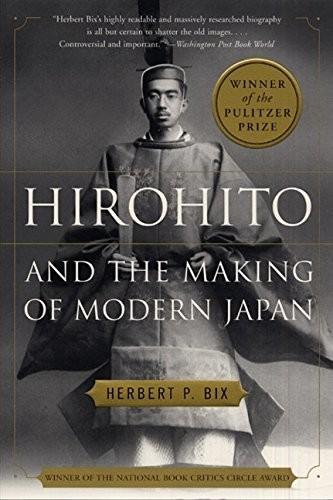
Hirohito and the Making of Modern Japan
by
Herbert P. Bix
Published 1 Jan 2000
In its indictment, the prosecution laid great emphasis on the charge of conspiracy—a legal concept grounded in the European natural-law tradition and in Anglo-Saxon common law but regarded as vague, unfamiliar, and historically anachronistic by Continental lawyers.79 Keenan and MacArthur, following Truman policy, obfuscated the Japanese decision-making process by omitting the one person in power during the entire seventeen-year period of the alleged conspiracy (January 1, 1928 to September 2,1945). That person was the emperor: He alone could have validated a conspiratorial union of wills to wage an illegal “war of aggression and a war in violation of international law, treaties, agreements and assurances.” Moreover the Allies had also committed war crimes but refused to apply the Nuremberg principles to their own conduct. Over the thirty-one months that the trial unfolded, the U.S.–Soviet Cold War steadily worsened, and that influenced the proceedings. Western colonialism in Asia remained alive and well, which meant that the Tokyo trial highlighted, in a way that Nuremberg did not, the problematic relationship between imperialism and international law.